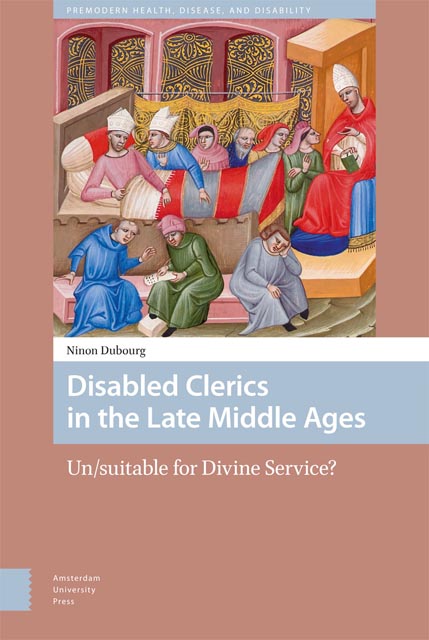Book contents
2 - Aetiologies of Impairment: Congenital, Geriatric, and Acquired Conditions
Published online by Cambridge University Press: 18 October 2023
Summary
Abstract
As presented in this chapter, during the petition process, supplicants defined their impairments through dialogue with the Papal Chancery. They drew on medical and religious culture, evident in the specific words deployed in letters, to present the causes of their impairments and to relate their ongoing experiences. Letters from the Chancery in response make use of similar terminology and frameworks, highlighting that petitioners’ conceptualizations of disability was shared by the Curia's staff and vice versa. The legal, cultural, and linguistic frameworks provided by Chapters 1 and 2 allow us to develop argumentative strands in the later chapters.
Keywords: Discourses; Aetiology; Medicine; Religion
All applicants to the orders were subject to vetting to ensure their suitability. Yet men hoping to become responsible for the care of souls (cura animarum) were under even more intense scrutiny. The care of souls was perhaps the single most important task in the clerical portfolio; clerics with such benefices must be above reproach, and thus were held to higher standards of idoneity than the rank-and-file clergy. This is exemplified in a letter from Urban VI (1318–1389) to the Franciscan leadership, written at some point after 1381 and collected by the convent S. Francesco di Conegliano, now preserved in the Archivio Status Tervisii. The Pope addresses Ludovicus de Venetiis, Minister General of the Order of Friars Minor, and Marcus de Conegliano, professor of the same Order, on an urgent matter: ensuring that sufficient checks have been undertaken on a candidate pursuing the role of master in the order, Brother Franciscus Belluni. Beyond illuminating this specific case, the letter reveals how the popes continued to resolve the tricky question of access to the sacred orders at the beginning of the Great Schism.
Franciscus’ request is neither as straightforward nor as simple as it might first appear. Masters in the Franciscan order were permitted to preach, to give sermons and to celebrate the divine offices.
- Type
- Chapter
- Information
- Disabled Clerics in the Late Middle AgesUn/suitable for Divine Service?, pp. 99 - 136Publisher: Amsterdam University PressPrint publication year: 2023



